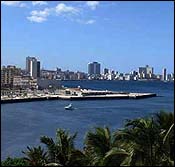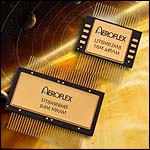 The State Department’s Bureau of International Security and Non-Proliferation released today a fact sheet celebrating the twenty-fifth anniversary of the Missile Technology Control Regime, a multilateral initiative to control the export and dissemination of certain missile related technology. The MTCR was initially adopted by the G-7 countries in 1985 and now boasts 27 additional member countries.
The State Department’s Bureau of International Security and Non-Proliferation released today a fact sheet celebrating the twenty-fifth anniversary of the Missile Technology Control Regime, a multilateral initiative to control the export and dissemination of certain missile related technology. The MTCR was initially adopted by the G-7 countries in 1985 and now boasts 27 additional member countries.
Instead of breaking out the cake and the champagne to fête the MTCR, we have decided at Export Law Blog to use this opportunity instead to ask why the State Department, instead of sending a birthday card to the MTCR, does not spend the time more productively to fix section 121.16 of the International Traffic in Arms Regulations. That section bears the misleading header “Missile Technology Control Regime Annex,” even though it bears as much resemblance to the current MTCR Annex as Ron Howard does to Opie Taylor. Since that section was added to the USML in 1993 items have come and gone on the MTCR annex like rock singers in rehab clinics and yet nary an amendment has been made to that section.
This, of course, opens up plenty of possibilities for confusion and unintentional hilarity (if you think that sloppy regulations are humorous). Recently, I had a client notice that a rather ubiquitous item was listed in section 121.16 which the client (and many others) had been exporting freely and without even thinking of a license for quite some time. The item had been removed from the MTCR Annex when the Annex was a mere toddler and only taking its first steps. The client had a legitimate query: is this item on the USML or not?
The answer to that question is far from clear at least based on the actual language of the ITAR. The only part of the ITAR even bearing on the question is section 120.29(c) which I think says — your guess is as good as mine — that the items in section 121.16 are the list of all items on the MTCR which aren’t on the Bureau of Industry and Security’s Commodity Control List, although that statement is, now, patently untrue.
So more for amusement than anything else, I called the DDTC Response Team to ask the simple question: if an item listed in section 121.16 is no longer on the MTCR is it still export controlled? You would have thought that I posed Bishop Berkeley’s famous question: “If a tree falls in a forest and there is no one to hear it, does it make any sound?” After a stretch of silence, and some mutterings, the Response Team member finally solemnly informed me, somewhat tentatively, that it was. Oh dear. If that’s true, everybody now exporting that item is going to be in for some fun times, I thought.
I was fairly convinced that the best, and only, way to read 121.16 was that it was intended to state what things that were on the Annex in 1993 were controlled by BIS and what things were controlled by DDTC and that it was the Annex which determined what was controlled and what was not. So I escalated the question up through DDTC and I did receive that answer ultimately from the agency: if an item is no longer on the MTCR, it does not require a license from DDTC simply because it is still referenced in section 121.16.
So, Happy 25th Birthday, MTCR! Here’s to hoping that before you turn 30 somebody will finally fix section 121.16.
 Here are some odds and ends that I’ve been saving up for a post:
Here are some odds and ends that I’ve been saving up for a post:
 Posted by
Posted by  Category:
Category: 

 The State Department’s Bureau of International Security and Non-Proliferation released today a
The State Department’s Bureau of International Security and Non-Proliferation released today a  Apparently international research on how best to prevent, contain and treat bird flu is now threatened by international laws restricting export of information relating to potential agents of biological warfare according to
Apparently international research on how best to prevent, contain and treat bird flu is now threatened by international laws restricting export of information relating to potential agents of biological warfare according to  The Office of Foreign Assets Control (“OFAC”) has nixed plans to start passenger ferry between Miami and Havana, Cuba. According to a
The Office of Foreign Assets Control (“OFAC”) has nixed plans to start passenger ferry between Miami and Havana, Cuba. According to a  A California man has been indicted in connection with his attempt to export radiation hardened, space qualified chips to the People’s Republic of China without an export license. The
A California man has been indicted in connection with his attempt to export radiation hardened, space qualified chips to the People’s Republic of China without an export license. The 

